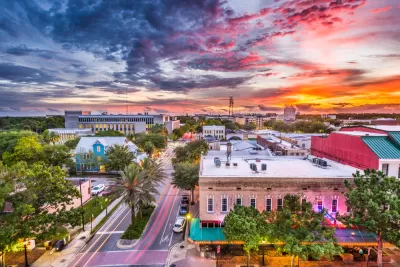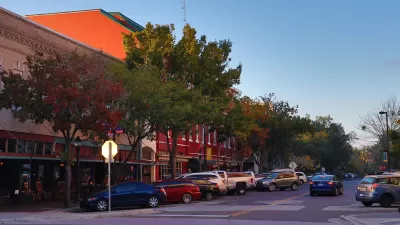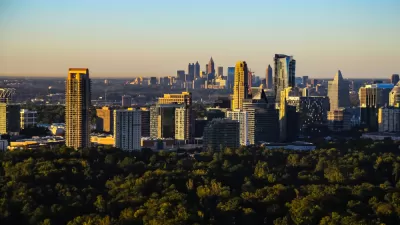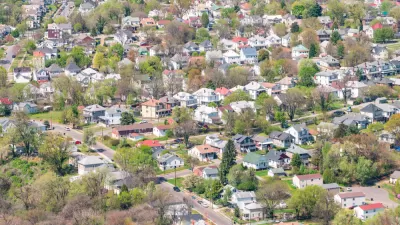A see-saw battle over land use and housing policy continues in the city of Gainesville.

Gainesville, Florida is in the final stages of planning and discussion on an ordinance that would implement mandatory inclusionary zoning in the city.
“The outline [of the proposed ordinance] presented to the plan board in June would require 10% affordable units for all developments with 10 or more units,” reports Seth Johnson for Main Street Daily News. “So, a developer proposing a 200-unit complex would set 20 units aside as affordable. The city could compensate by then allowing the developer to build extra units, taking the development above 200 units.” Gainesville has approved developments with inclusionary zoning already, but only on a voluntary basis, adds Johnson.
The debate is occurring just a few months after reversing a decision to replace the city’s single-family zoning with “neighborhood residential zoning.” The zoning change would have allowed more multi-family residential buildings in the city.
The same study that produced that previous effort at zoning reforms is also responsible for the current inclusionary zoning proposal, according to the article, “The City Commission hired a firm to conduct a housing study that finished at the end of 2021. That study looked at both inclusionary and exclusionary zoning, directly leading to last year’s vote to end single-family zoning. With that decision reversed, the city can set its sights on inclusionary zoning and other housing changes,” writes Johnson.
The report, completed by HR&A Advisors, is available to read online.
FULL STORY: Gainesville considers inclusionary zoning

Maui's Vacation Rental Debate Turns Ugly
Verbal attacks, misinformation campaigns and fistfights plague a high-stakes debate to convert thousands of vacation rentals into long-term housing.

Planetizen Federal Action Tracker
A weekly monitor of how Trump’s orders and actions are impacting planners and planning in America.

In Urban Planning, AI Prompting Could be the New Design Thinking
Creativity has long been key to great urban design. What if we see AI as our new creative partner?

King County Supportive Housing Program Offers Hope for Unhoused Residents
The county is taking a ‘Housing First’ approach that prioritizes getting people into housing, then offering wraparound supportive services.

Researchers Use AI to Get Clearer Picture of US Housing
Analysts are using artificial intelligence to supercharge their research by allowing them to comb through data faster. Though these AI tools can be error prone, they save time and housing researchers are optimistic about the future.

Making Shared Micromobility More Inclusive
Cities and shared mobility system operators can do more to include people with disabilities in planning and operations, per a new report.
Urban Design for Planners 1: Software Tools
This six-course series explores essential urban design concepts using open source software and equips planners with the tools they need to participate fully in the urban design process.
Planning for Universal Design
Learn the tools for implementing Universal Design in planning regulations.
planning NEXT
Appalachian Highlands Housing Partners
Mpact (founded as Rail~Volution)
City of Camden Redevelopment Agency
City of Astoria
City of Portland
City of Laramie





























